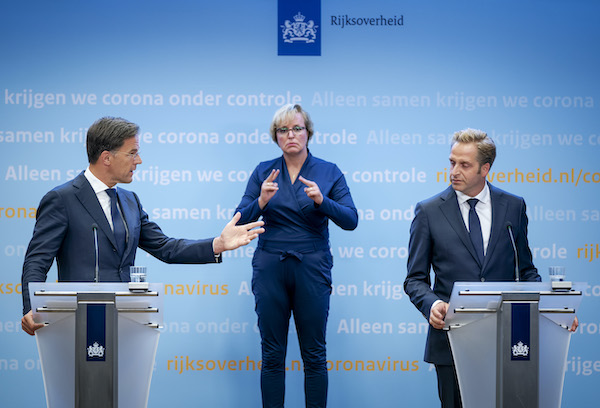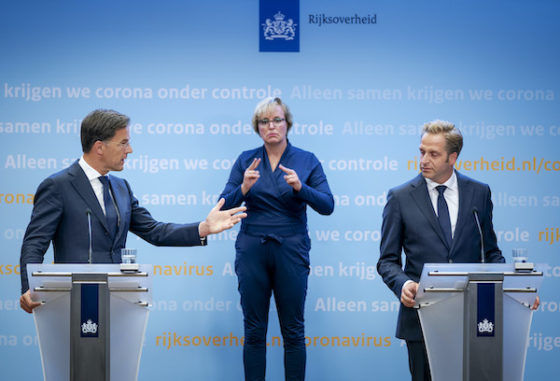No more parties in the garden, and working at home remains key: Dutch PM


Drinks parties and gatherings at home with more than six people, excluding children, are once again on the ‘not done’ list in the Netherlands, as the cabinet tries to reduce the rise in the number of coronavirus cases.
At the same time, the period of quarantine for people who have been in contact with coronavirus patients or who have travelled to risky countries, is to be reduced from 14 to 10 days.
‘Parties, drinks with the neighbours, family events… hugs, this is where things are not going so well,’ Rutte said. ‘If you have people to your home, the maximum is six guests, and ask if everyone is symptom free. You need a big living room to keep 1.5 metres distance,’ the prime minister said. ‘You can’t always do what you want.’
For bigger events, family groups should go to bars and cafes, where safety is properly organised, he said. But here too, officials will take a tough line on monitoring.
Health minister Hugo de Jonge said that having 50 or 60 people at a party makes the work of contact tracers much more difficult because it takes so long to track down everyone. ‘We have to limit our contacts,’ he said. ‘And if this does not help, then we are losing sight of the virus… and that will be terrible for the economy.’
Home working
In addition, Rutte said, that despite rumours to the contrary, working at home remains the primary rule. ‘There is no end date to this,’ he said. ‘People must work at home as much as possible.’
‘Of all rules we made at the beginning, the most effective advice was to work from home wherever possible,’ he said. ‘The figures don’t suggest we can relax this so the advice is to work from home wherever possible, and that means after September 1 as well.’
Schools
Despite concerns about safety at schools, Rutte said that government advisors are convinced the schools can go back. ‘But children should stay home if they have symptoms,’ he said. ‘And they should also remain home if a family member tests positive.’
Officials are monitoring what is happening at schools and keeping a close eye on how many teachers develop the virus, De Jonge said. ‘If there is a school cluster, then the RIVM will act.’
The RIVM estimates that currently some 50,000 people are infectious, De Jonge said. ‘The number of infections must go down and so we are taking countrywide and regional measures, adding that ‘the coming weeks are crucial’.
Amsterdam is due to make new local regulations public later in the evening.
Thank you for donating to DutchNews.nl.
We could not provide the Dutch News service, and keep it free of charge, without the generous support of our readers. Your donations allow us to report on issues you tell us matter, and provide you with a summary of the most important Dutch news each day.
Make a donation